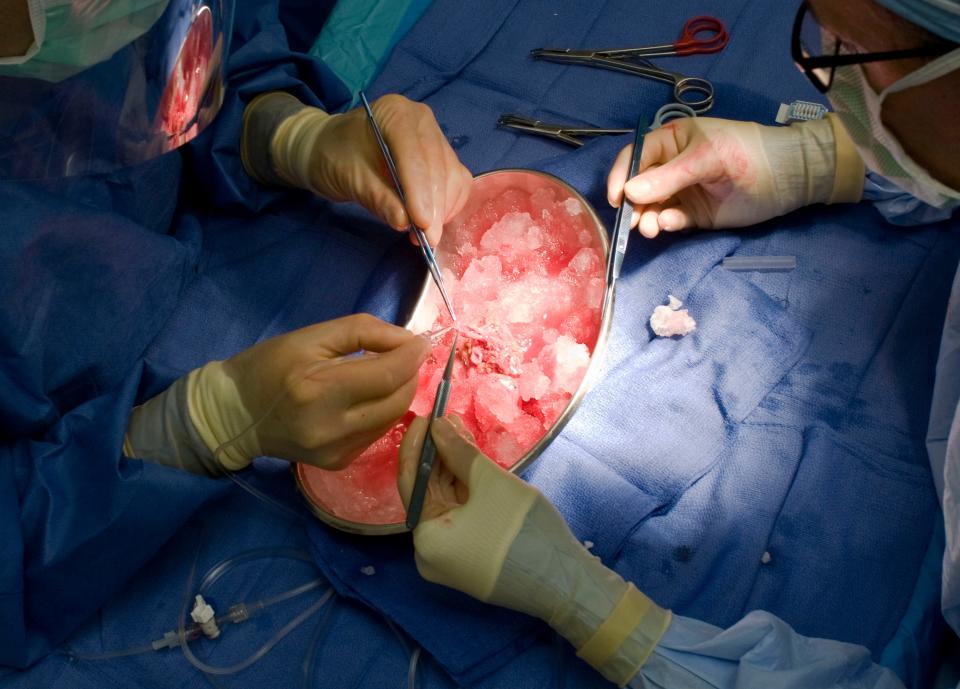Professor: Have a heart by becoming an organ donor
This commentary is written by John A. Tures, a professor of political science at LaGrange College.
Not all of us have the capacity or opportunity to save a life, even as many Americans would strongly consider sacrificing themselves to help a fellow American. There’s a simple way to do just that, and it wouldn’t cost much at all.
Become an organ donor.
Donating your organs is something most people don’t think about on a daily basis. I know, because I was just like you. I never gave the subject much thought either. I remember the Monty Python skit from Britain about live organ transplants, and laughed too. Then something occurred recently that made me aware of a growing problem in America.

A relative, very close to me, started showing major signs of weakness. This formerly active Boy Scout adult leader who once would hike, camp and go on whitewater rafting trips became exhausted just by walking across the house. We didn’t know why, but we got our answer after emergency trips to the hospital, and being rushed to Atlanta. He needed a heart transplant.
It was rough before they stabilized him. I was afraid to get a phone call or text, worried something terrible would happen, and I wouldn’t have even had a chance to say goodbye. I can only imagine what his direct family must have been going through on those long days and nights.
You feel so helpless during the process. It’s not like working harder at the office would solve the problem, or buying a lottery ticket, or crossing one’s fingers. You wish there was something else you could do.
When I got the news, I didn’t even know if I was an organ donor. I had to check my driver's license. To my relief, I must have had some sense at the time of my renewal, because I am an organ donor.
Lots of us wouldn’t mind helping. In fact, statistics show that between 90% to 95% of Americans say they support being an organ donor. Yet only 50% to 58% of Americans actually sign up to be an organ donor. There’s an unfortunate gap between rhetoric and reality.
You can register when you apply or renew your driver’s license. You can even register online, instead of waiting years until you renew your license (and you can remove your name from the list any time). If you don’t drive, you can go to donors1.org or HRSA. Let your family know your wishes too. The donor doesn’t pay the medical costs of the procedure.
“‘Even with all of our success in transplanting patients and saving lives, there’s still work to do to register more organ and tissue donors,’ says Dr. Michael Marvin, chair of transplantation and liver surgery for Geisinger. ‘In many ways, being an organ donor is one of the greatest gifts you can give.’”
Each donor could save between eight and 50 lives.

The stakes couldn’t be higher. By ignoring the problem, or listening to the conspiracy theories, Americans lose more than 28,000 organs a year that could have saved lives. There are usually more than 100,000 men and women on the list, waiting for an organ, desperate for help. With a few changes that don’t cost a penny, you too could be a hero, for a person, and their family, in need.
Don’t wait until you are like me, wishing you had sounded the alarm earlier about the critical need for Americans to step up and save a life. Today’s the day to do this important lifesaving step.
Contact Tures at jtures@lagrange.edu or via Twitter @JohnTures2.
This article originally appeared on Savannah Morning News: Americans support organ donation and need to register to help others

